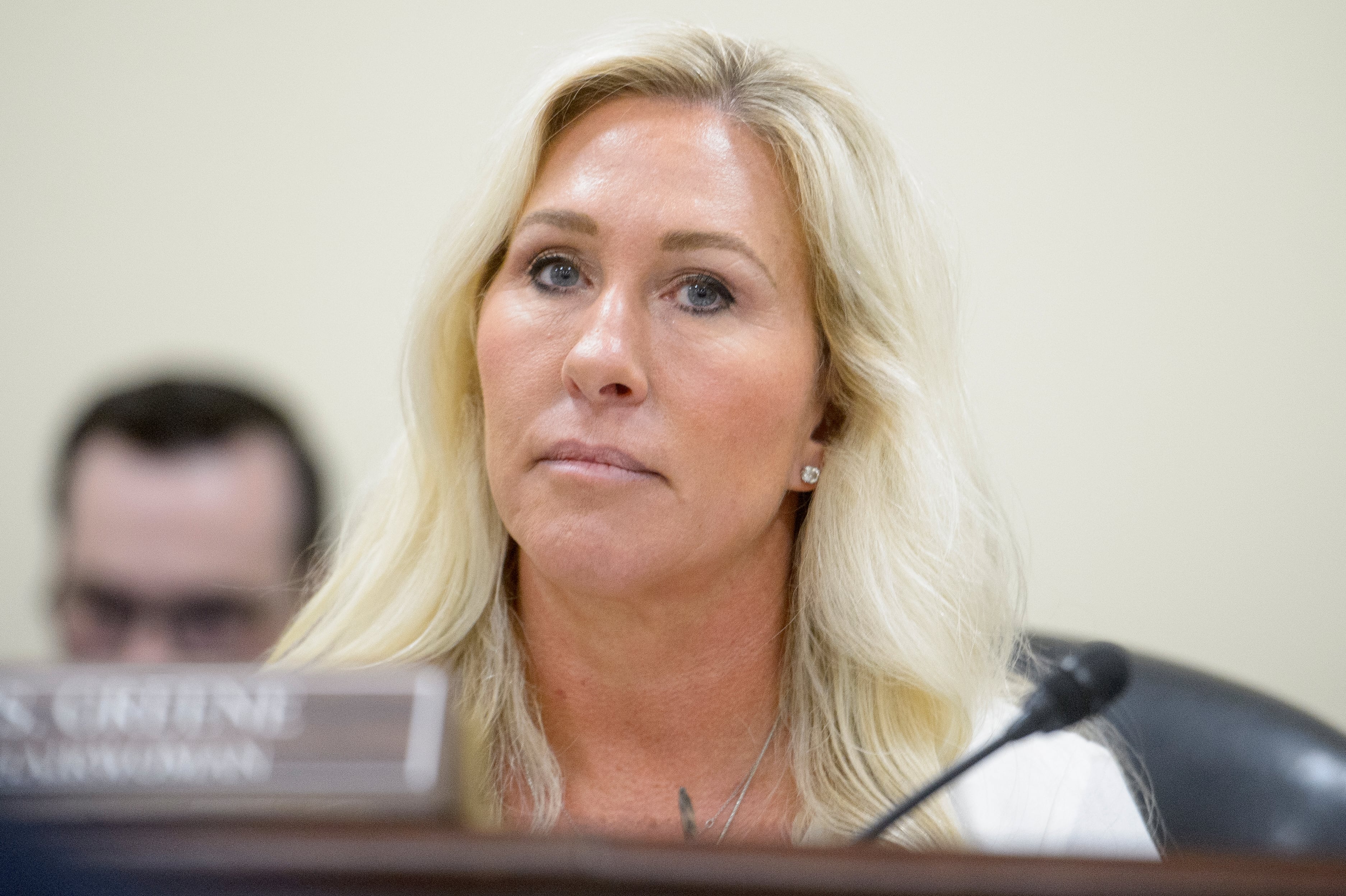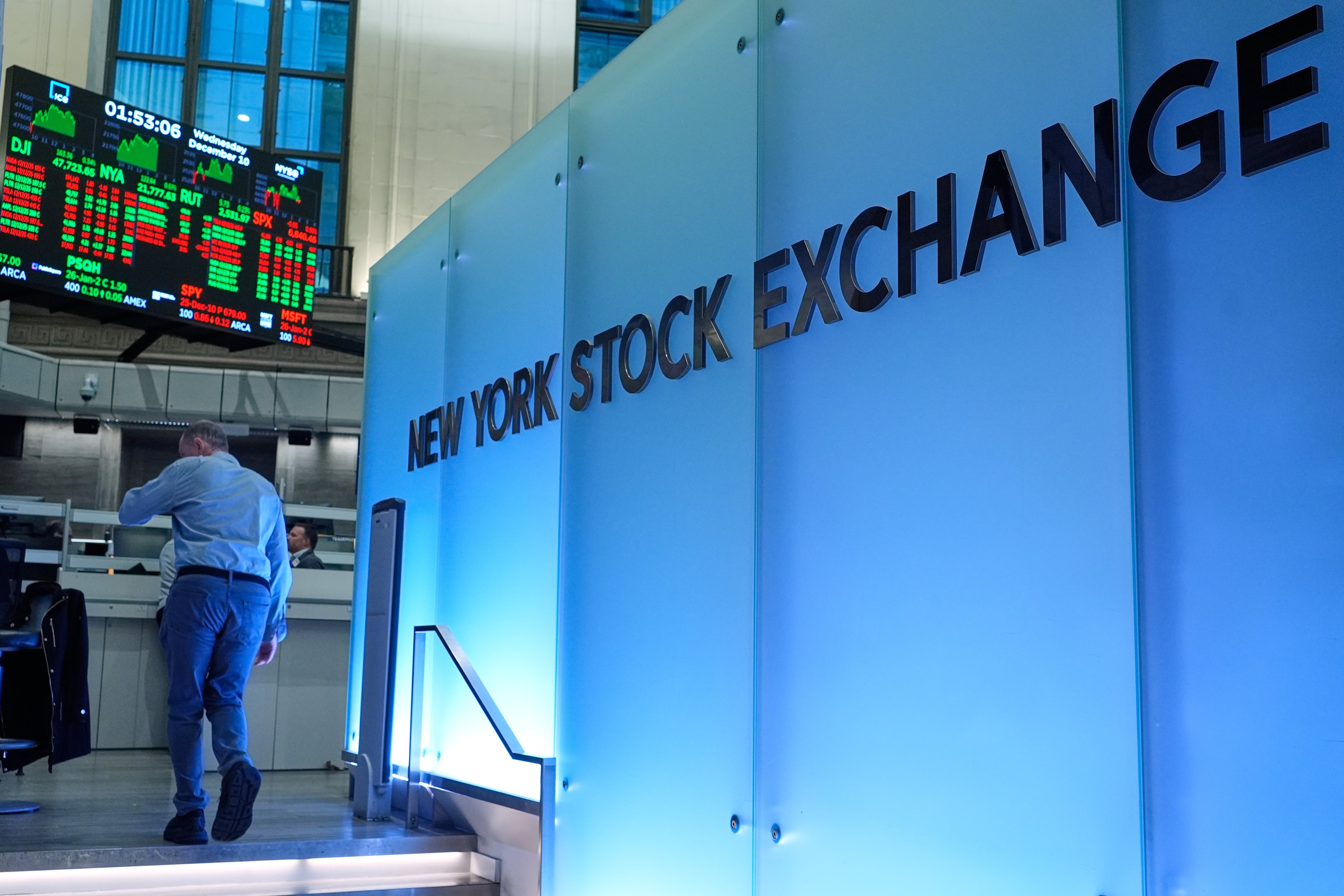NEW YORK (AP) — As stocks tanked on tariff fears, Marjorie Taylor Greene showed her faith in the president not just with words but dollar bills.
The Republican congresswoman, an avid supporter of the Trump administration's trade policies, not only bought stocks last week as others dumped them in a panic — she scooped up some of the biggest losers.
Lululemon, Dell Computer, Amazon, the parent of Restoration Hardware and a few others hit hard by Trump's tariff threats were down 40% on average late last week when she pounced.
Data from a required three-page financial holdings document doesn't disclose exactly how much she paid for the stocks, only ranges and dates.
But however much she spent, some of her bets are working out so far, at least as of Wednesday's close.
RH, formerly called Restoration Hardware, is Greene’s clear winner. It jumped more than a third since since Friday's close when she bought it after a stunning collapse in price that shook even the head of the furniture retailer.
“Oh, sh…!,” said RH CEO Gary Friedman in a conference call last week as the stock plunged.
Dell has jumped 9% since Greene bought the stock last week after it had lost more than half its value.
Lawmakers from both major parties have proposed bills banning members from stock trading because of the apparent conflict of interest in owning shares of companies they can heavily influence with positions they can take in office.
But none of the clunkily named bills -- The Transparent Representation Upholding Service and Trust in Congress Act, for instance -- has been passed. A new bill, The End Congressional Stock Trading Act, was proposed last month.
Asked whether she made the stock purchases herself and about possible conflicts of interest, Greene said in a statement: “I have signed a fiduciary agreement to allow my financial advisor to control my investments. All of my investments are reported with full transparency.”
The MAGA supporter has been outspoken in her support of Trump’s tariffs.
“Tariffs are a powerful proven source of leverage to protect our national interests,” she posted on X earlier this year, adding “We will win this trade war.”
Investors are not completely convinced.
After surging on Wednesday when Trump called a partial halt to the import taxes, stocks were heading down again Thursday.
The U.S. stock market is drifting lower following mixed data on the economy’s strength. The S&P 500 fell 0.4% Tuesday and remains a bit below its all-time high set last week. The Dow Jones Industrial Average dropped 271 points, and the Nasdaq composite was mostly unchanged. Treasury yields eased a bit after the reports on the U.S. job market, retail sales and business activity did little to clear uncertainty about where the Federal Reserve may take interest rates next year. AI stocks, which have been under heavy pressure recently, were mixed. Stock indexes fell across much of Europe and Asia.
Many U.S. consumers say they’ve noticed higher than usual prices for holiday gifts in recent months, according to a a December poll from The Associated Press-NORC Center for Public Affairs Research. A contributing factor is the unusually high import taxes the Trump administration put on foreign goods. While the worst-case consumer impact that many economists foresaw from the administration’s trade policies hasn’t materialized, some popular gift items have been affected more than others. Most toys and electronics sold in the U.S. come from China. So do most holiday decorations. Jewelry prices have risen due to the cost of gold.
A sell-off for Oracle is weighing on Wall Street as investors question whether its big spending on artificial-intelligence technology will pay off. The S&P 500 was mostly unchanged Thursday and hovering around its all-time high set in October. Drops for AI-related stocks dragged the Nasdaq composite down 0.6%. Oracle at one point was heading toward its worst loss since 2001 on worries about how much it plans to spend on AI infrastructure. But most stocks on Wall Street rose, and the Dow Jones Industrial Average jumped 600 points. Treasury yields slipped after a report showed more U.S. workers applied for unemployment benefits.
The U.S. stock market is flirting with its all-time high after the Federal Reserve cut its main interest rate to bolster the job market. The S&P 500 rose 0.8% Wednesday and was on track to squeak past its all-time closing high, which was set in October. The Dow Jones Industrial Average climbed 559 points, and the Nasdaq composite rose 0.4%. Wall Street loves lower interest rates because they can boost the economy and goose prices for investments, even if they have the potential of making inflation worse. Treasury yields eased in the bond market.
The U.S. stock market is drifting near its record levels following reactions to profit reports from Macy’s, Marvell Technologies and other companies. The S&P 500 added 0.4% Wednesday and climbed within 0.5% of its all-time high set in late October. The Dow Jones Industrial Average added 428 points, and the Nasdaq composite rose 0.2%. Treasury yields eased in the bond market following some mixed reports on the U.S. economy. One suggested hiring was much weaker in November than economists expected, while a second said growth for U.S. services businesses was better than expected.
The Enhanced Games is going public in two ways — with a new listing on the Nadsaq stock exchange and also by offering a direct-to-consumer business focused on performance products.









